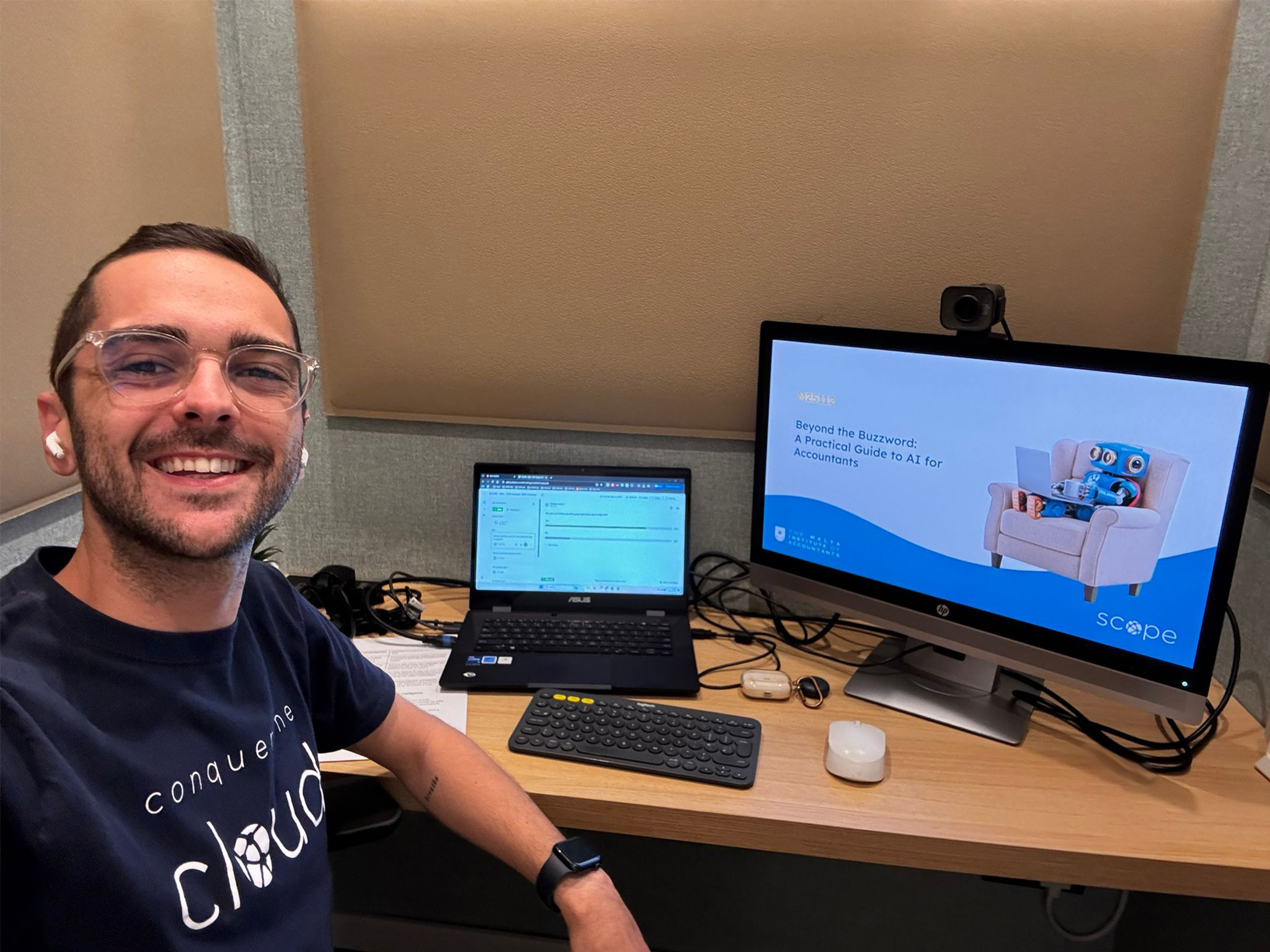
Following a pivotal session led by our Finance Solutions Team Lead, Mick Hili, the conversation about Artificial Intelligence in accounting is shifting from fear to opportunity.
4 minutes to read
The question is no longer “Will AI replace us?” but “How will AI empower us?”
Mick’s guide offered a clear, practical roadmap for accounting professionals looking to understand and harness the transformative power of this new technology.

AI: Augmentation, Not Annihilation
Mick emphasised that AI is not a future threat, but a powerful, present-day partner. The session began by demystifying AI, moving past the buzzwords to highlight its current role in finance.
What AI Is: At its core, AI refers to systems that can simulate human intelligence to perform tasks, from pattern recognition to decision-making.
Augmentation Principle: The evidence is clear: AI is designed to augment human capabilities, not replace the human expert. Accountants who leverage AI tools are already demonstrating significant productivity and quality advantages. AI handles the routine; you focus on the strategic.
The Internet Caveat: A crucial reminder was given: AI sources its information from the internet, just like us. Professional skepticism is vital because, as Mick noted, “is everything you read on the internet true?” Human oversight remains the ultimate quality control.
Current Trends: AI Shaping the Accounting and Audit Industry
The core of the session explored how AI is already being applied across critical areas of the profession, providing real-world examples that move beyond simple automation.
AI is fundamentally transforming key areas of the accounting and audit industry.
In Data Extraction, AI automates the capture and processing of information from invoices, receipts, and other documents, which significantly reduces manual entry and minimizes errors.
For Audit & Risk management, AI enhances continuous auditing by analyzing 100% of transactions, identifying anomalies, fraud patterns, and high-risk areas with greater speed and precision than traditional methods.
Within Financial Reporting, the technology accelerates the consolidation of financial data, automates compliance checks, and enables the faster, more accurate generation of reports.
Finally, for FP&A (Financial Planning & Analysis), AI moves beyond historical data to provide advanced forecasting and predictive cash flow models, offering accountants and leaders more actionable strategic insights.
The discussion also touched on the different forms of AI, particularly Generative AI (which creates content, like reports or summaries) and Agentic AI (which performs complex, goal-oriented tasks). These tools allow professionals to not only automate tasks but also to build their own virtual assistants for specific departmental needs.
The Indispensable Role of Professional Competence and Due Care
While the benefits are immense, Mick underscored the necessity of anchoring AI use within the profession’s ethical and regulatory framework.
- Professional Competence and Due Care: AI tools are sophisticated assistants, not qualified accountants. They do not substitute for human professional knowledge. Accountants must fully understand the tool’s mechanics, its risks, and its limitations.
- Transparency and Accountability: Where professional judgment has been influenced by Generative AI, that use must be clearly documented. For institutions, thorough documentation and transparent auditing are non-negotiable elements of any AI implementation strategy.
- The New Skill Imperative: Thriving in this AI-powered world requires developing new skills, particularly those focused on data interpretation, strategic thinking, ethical AI use, and continuous professional development in new technologies.

Stop Fearing, Start Shaping
Mick’s guide provided a clear takeaway: AI is not taking jobs; it’s taking tasks. By embracing AI, accountants are being freed from repetitive, low-value work and are empowered to focus on the strategic, high-value analysis and advisory that makes them indispensable partners to their clients and organizations.
The future of accounting is one where AI is the engine, but the qualified, skeptical, and strategic accountant remains the driver. This is our opportunity to stop fearing the future and start shaping it. Ready to stop fearing the future and start shaping it? Let’s talk about how AI can fuel efficiency within your practice.



